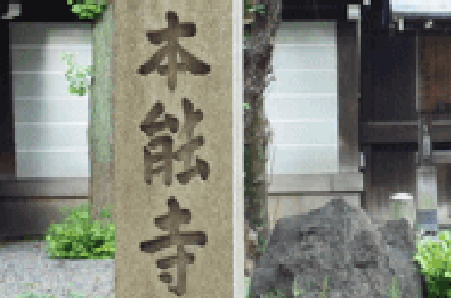本ブログは観光業、企業接待、留学生対応等で英語案内が必要ながら、多忙で準備に時間をかけられない方々の為にすぐに使える情報を分かりやすく解説しています。
👉タイトルの「裏切”Betrayal”」「切腹”Ritual Suicide”」を含む関連表現は《Glossaries(用語集)》でご紹介しています。
今回は武家屋敷跡で有名な金沢の《野村家》をテーマにした本編ブログ『野村家わかり易く解説』の《書簡:Q1:この感謝状のどこに価値があるの?》のA級者用(日→英の対応が必要な方)向け演習ツールです。
👉ショートカット&リンクについて!①最初に音声で学習されたい方はそのままお進みください。➁最初に原文を確認されたい方は『日本語』or『英語』へ③本編ブログを参照されたい方は『野村家わかり易く解説』へ。④音声ツールの概要を参照されたい方は『演習ツール』まで!
鬼川文庫◆手紙(感謝状)
Q1:この感謝状のどこに価値があるの?
演習しやすい様に本編の日本語は少し編集して(日英の語順を極力合わせて)います。末尾に用語集有り!
Dツール:”日⇒英”演習簡易ツール:感謝状
D1:日英確認用:『日本語』”英語”対訳
👉文単位で日本語の後に英訳が續きますので、内容の確認ができます。
D2:口頭即訳用:『日本語』のみ(ポーズ間に英訳)
👉各日本語文の後はポーズになっていますので、その間に英訳できます。
D3:リピーティング用:”英語”のみ(ポーズ無し)
👉英語音声のみが(ポーズなく)続きますので復唱ができます。
D4:内容チェック用:”英語”のみ(低速版:or同通演習用)
👉英語音声(ポーズなし)を低速版で復唱or同時通訳の演習ができます。速さはいつも通り、約120wpm(約85%低速版)です。
👉Glossaries(用語集)
the most notable betrayals(最も顕著な裏切り)to assume one’s position(就任する)tyrannical nature(暴虐性)to commit seppuku (ritual suicide)(切腹する)the traitor and the subsequent lord(その裏切者と後の主君)to face one’s demise(死に直面する)
《原文:日本語》
- これは感謝状ですが、日本史上、最大の裏切り者として有名なサムライからのものです。
- 「ユダ」や「ブルータス」が世界史で有名な代表例であるように、彼も日本史で同様に位置付けられています。
- 彼は自分の軍隊を差し向けて自分の上司を殺したのですが、その上司は当時事実上の日本のキングで、その時休養中だったのです。
- 彼はそのキングに、それまでとても従順で忠実だったので、その裏切り行為は今でもミステリーとされてます。
- その裏切りがあった時、金沢城領主も領主になる前のことで、彼はその殺されたキングの部下であり、その裏切り者の同僚でした。
- もし、そのキングがその不幸に遭遇していなかったら、金沢城領主もその部下の野村家もなかったでしょう。
- そのキングはかなりの暴君で、期待に満たないダメだしされた多くの部下たちは厳罰又は左遷されたか、最悪の場合は切腹を命じられたりもしました。
- 専門家によると、合理性やリスペクトからでなく、恐怖心から多くの部下が従ったと言われています。
- その裏切り者も、その後の金沢城の城主も遅かれ早かれ殺されていたかもしれません。
- もしかすると、出したかったのはその裏切り者でなく、むしろ野村家の方だったかもしれませんよ。裏切りへの感謝状。
《原文:英訳例》
- This is a letter of gratitude from a samurai known for one of the most notable betrayals in Japanese history.
- Just as “Judas” and “Brutus” are well-known examples in world history, he holds a similar position in Japanese history.
- He sent his own troops to kill his boss, who was then the de facto king of Japan, while the latter was resting
- He had been so obedient and loyal to that king up to that point that his betrayal is still considered a mystery.
- At the time of the betrayal, before the lord of Kanazawa Castle assumed his position, he was subordinate to the murdered king and a colleague of the traitor.
- If the king had not met his unfortunate end, there might not have been a Lord of Kanazawa Castle and its retainers, including the Nomura family.
- The king’s tyrannical nature led to the punishment or forced removal of many of his subordinates who failed to meet his expectations, with the most severe consequence being ordered to commit seppuku (ritual suicide).
- Experts suggest that fear, rather than respect or rationality, compelled many of his men to follow him.
- Both the traitor and the subsequent lord of Kanazawa Castle might have faced their demise sooner or later.
- It’s possible that it was the Nomura family, not the traitor that wanted to write a ‘thank you’ letter for the betrayal.
御礼🔶後書き
🔶今回も最後まで読んで頂き大変ありがとうございます。もし何かご意見やリクエストございましたらお気軽に『Help Desk』にてお声がけくださいませ。Gold🔶


